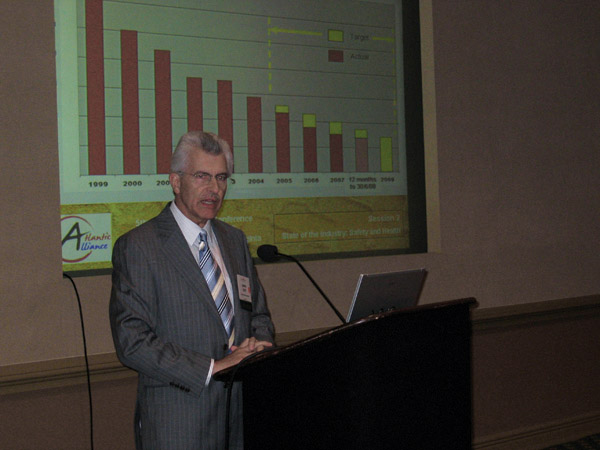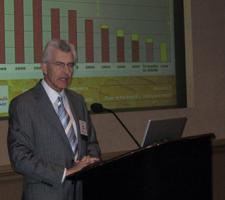
In September health and safety experts from Europe and the US convened to discuss best practise and the way forward to further improve the sector
Safety is a high priority in both Europe and across the Atlantic in the US and led to the formation of the
"The Atlantic Alliance is an international health and safety convention, the aims of which are to exchange knowledge and best practice, and to present a unified front on internationally common issues," explained
"In particular, the alliance complements and adds value to other organisations by harnessing the combined 'weight' of industry and regulators in Europe and the US."
The Atlantic Alliance was formed in 2004 when it first met in the UK and brought together representatives from the UK, USA, Eire and Germany. Subsequent Atlantic Alliance meetings have been held in Orlando, US, Dundalk, Ireland and Munich, Germany. The frequency has now evolved to become biennial, but with increased emphasis on progress between conferences.
This unique international health and safety gathering included a wide range of presentations by speakers from many European countries and the US, as well as on behalf of the industry in Australia.
The presentations were variously originated by aggregate producers, equipment suppliers, trade associations and - of particular importance - senior representatives from the regulatory authorities from the US, the UK and Ireland.
"This diversity reflects the very essence of the Atlantic Alliance in that it provides a forum for the industry, its regulators and other stakeholders - on both sides of the Atlantic to come together to discuss and exchange health and safety information; trends; problems, and solutions," said Isles.
In all, delegates were treated to some 40 presentations, which included subjects such as reviews, benchmarking and harmonisation of safety statistics; safer equipment design; health and safety in Europe; contractor competence; respirable crystalline silica; and diesel particulate matter.
Denis Mertens, president of the European Aggregates Association (UEPG), was the principal European presenter and provided the context for continuous improvement in health and safety - namely UEPG's support for the three pillars of sustainable development.
Majoring on the general theme of 'Safer by design', the UK's Rory Graham presided over two of the key sessions which provided further clarity and insight into the reasons why suppliers have to focus far more strongly on the needs of the users. The suppliers' speakers covered a spectrum of companies - many global - who have acknowledged the legitimate expectations of the users and witnessed a clear call from producers to enter into further dialogue and co-operation to extend their recent positive actions towards meeting this challenge.
The challenge
Of particular significance, the quarry operators challenged the global equipment manufacturers to raise their game, pointing out that the European CE mark was viewed by many as being of limited benefit. While it was accepted that ISO standards would always lag behind best practice, there was every good reason for the more customer-focused manufacturers to put more effort into designing in ways to avoid slips, trips and falls and minimise working at height. "There was abundant evidence that solutions were to hand for many of the problems identified," said Isles.
"It was said that quarrying companies employ many resourceful and innovative people, but that the industry should not have to rely on its own people to apply remedies. There was no excuse for perpetuating known hazards in the face of known solutions. In short there is no substitute for safe design."
The 2008 Atlantic Alliance did resolve to develop a set of 'Gold standard' recommendations to be developed in partnership with one or more of the global manufacturers. An Atlantic Alliance working party will develop the issues and resolutions further and the group will be co-chaired by Martin Isles as representing the European producers' interests.
UEPG Secretary General Antony Fell has offered to host the next Atlantic Alliance in Brussels and the event is expected to be held in the autumn of 2010.









